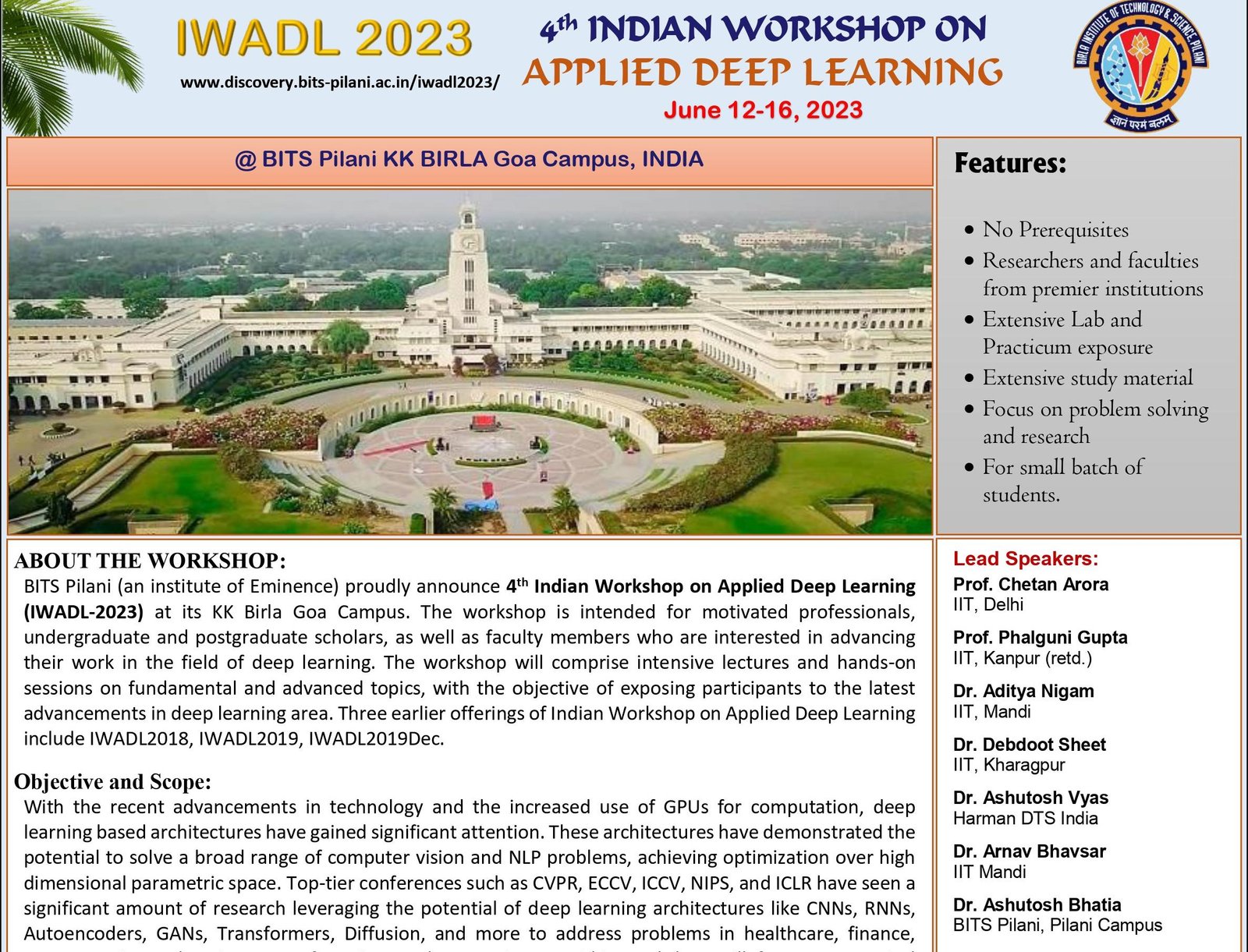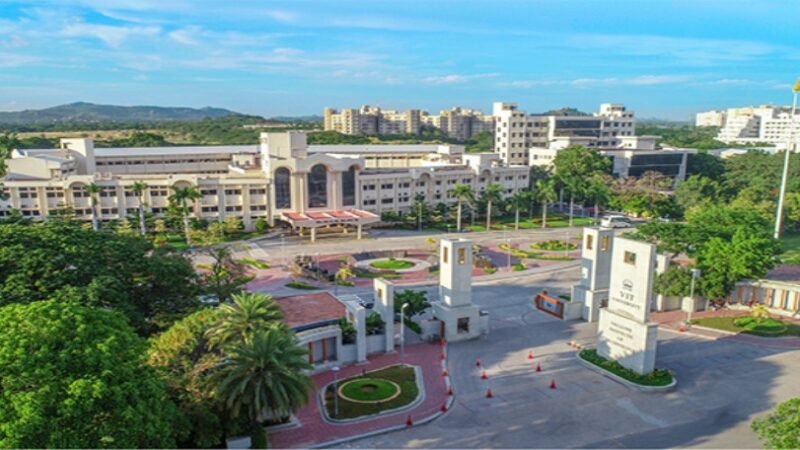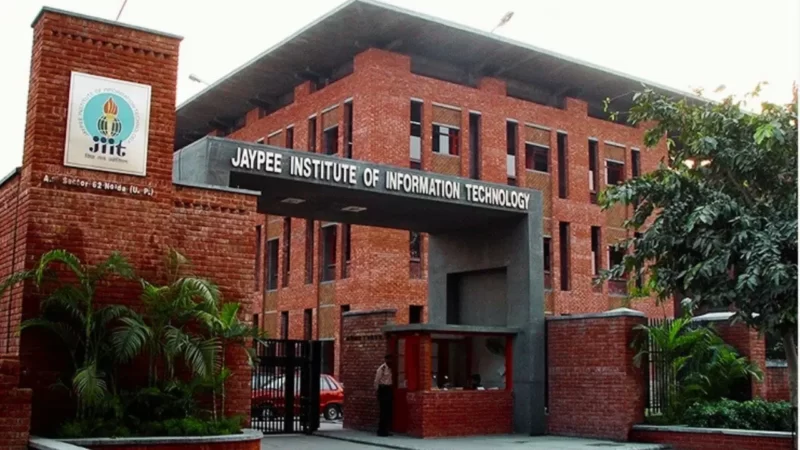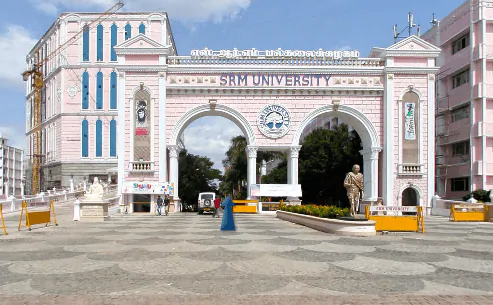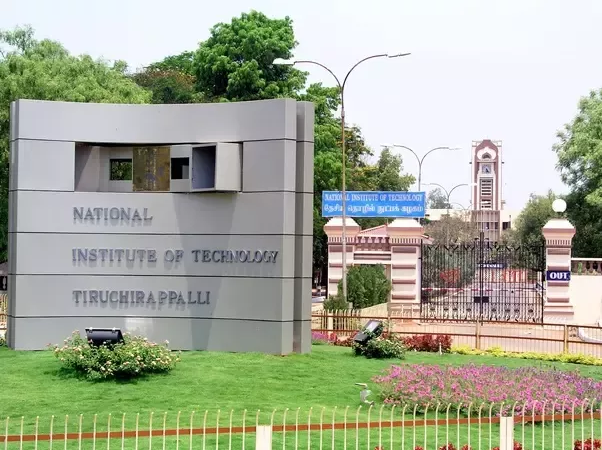Website: http://discovery.bits-pilani.ac.in/iwadl2023/
Important Dates and Deadlines:
Early Registration 30 April, 2023,
Late Registration 05 May, 2023,
Participants shortlist 08 May, 2023,
Workshop Dates 12-16 June, 2023

ABOUT THE WORKSHOP:
BITS Pilani (an institute of Eminence) proudly announce 4th Indian Workshop on Applied Deep Learning
(IWADL-2023) at its KK Birla Goa Campus. The workshop is intended for motivated professionals,
undergraduate and postgraduate scholars, as well as faculty members who are interested in advancing
their work in the field of deep learning. The workshop will comprise intensive lectures and hands-on
sessions on fundamental and advanced topics, with the objective of exposing participants to the latest
advancements in deep learning area. Three earlier offerings of Indian Workshop on Applied Deep Learning include IWADL2018, IWADL2019, IWADL2019Dec.
Objective and Scope:
With the recent advancements in technology and the increased use of GPUs for computation, deep
learning based architectures have gained significant attention. These architectures have demonstrated the
potential to solve a broad range of computer vision and NLP problems, achieving optimization over high
dimensional parametric space. Top-tier conferences such as CVPR, ECCV, ICCV, NIPS, and ICLR have seen a
significant amount of research leveraging the potential of deep learning architectures like CNNs, RNNs,
Autoencoders, GANs, Transformers, Diffusion, and more to address problems in healthcare, finance,
transportation, education, manufacturing, and entertainment. This workshop will focus on practical
applications of deep learning and include sufficient hands-on sessions.
Workshop Topics:
Magic of Deep Learning
Machine Learning
Perceptron and Neural Networks
Training, Regularization, FC Networks
Convolutional Neural Networks (CNN)
CNN Case Students – Popular Models
Object Detection and Localization
Sequence Modeling with RNN and LSTM
Siamese Networks
Transformers
Large Language Models (LLM) ChatGPT
Generative Modeling
Autoencoders & VAE
Generative Adversarial Networks (GAN)
Secure and Explainable Deep Learning
Deep Reinforcement Learning
Diffusion Models

